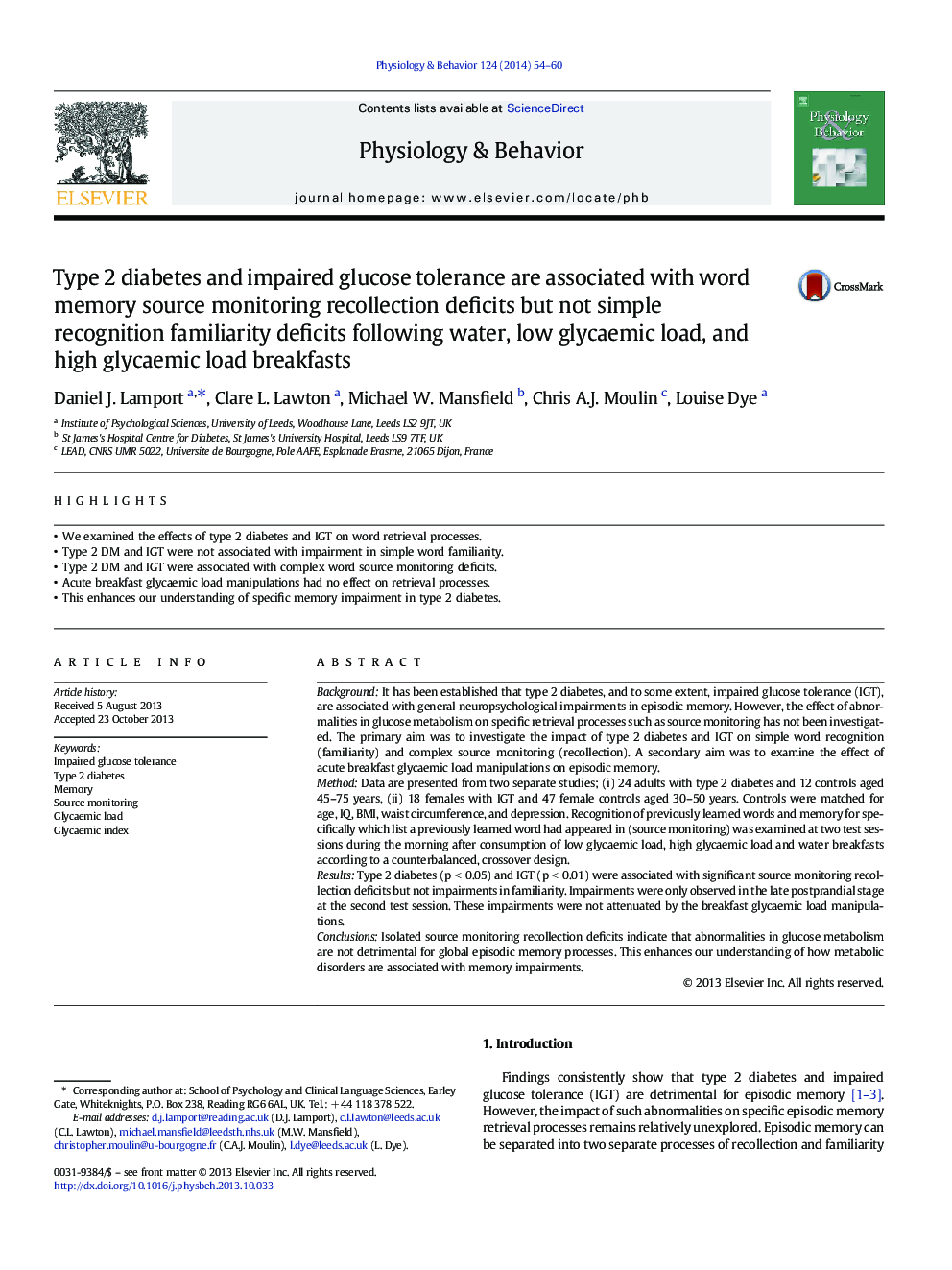| کد مقاله | کد نشریه | سال انتشار | مقاله انگلیسی | نسخه تمام متن |
|---|---|---|---|---|
| 5924515 | 1571193 | 2014 | 7 صفحه PDF | دانلود رایگان |
- We examined the effects of type 2 diabetes and IGT on word retrieval processes.
- Type 2 DM and IGT were not associated with impairment in simple word familiarity.
- Type 2 DM and IGT were associated with complex word source monitoring deficits.
- Acute breakfast glycaemic load manipulations had no effect on retrieval processes.
- This enhances our understanding of specific memory impairment in type 2 diabetes.
BackgroundIt has been established that type 2 diabetes, and to some extent, impaired glucose tolerance (IGT), are associated with general neuropsychological impairments in episodic memory. However, the effect of abnormalities in glucose metabolism on specific retrieval processes such as source monitoring has not been investigated. The primary aim was to investigate the impact of type 2 diabetes and IGT on simple word recognition (familiarity) and complex source monitoring (recollection). A secondary aim was to examine the effect of acute breakfast glycaemic load manipulations on episodic memory.MethodData are presented from two separate studies; (i) 24 adults with type 2 diabetes and 12 controls aged 45-75 years, (ii) 18 females with IGT and 47 female controls aged 30-50 years. Controls were matched for age, IQ, BMI, waist circumference, and depression. Recognition of previously learned words and memory for specifically which list a previously learned word had appeared in (source monitoring) was examined at two test sessions during the morning after consumption of low glycaemic load, high glycaemic load and water breakfasts according to a counterbalanced, crossover design.ResultsType 2 diabetes (p < 0.05) and IGT (p < 0.01) were associated with significant source monitoring recollection deficits but not impairments in familiarity. Impairments were only observed in the late postprandial stage at the second test session. These impairments were not attenuated by the breakfast glycaemic load manipulations.ConclusionsIsolated source monitoring recollection deficits indicate that abnormalities in glucose metabolism are not detrimental for global episodic memory processes. This enhances our understanding of how metabolic disorders are associated with memory impairments.
Journal: Physiology & Behavior - Volume 124, 30 January 2014, Pages 54-60
